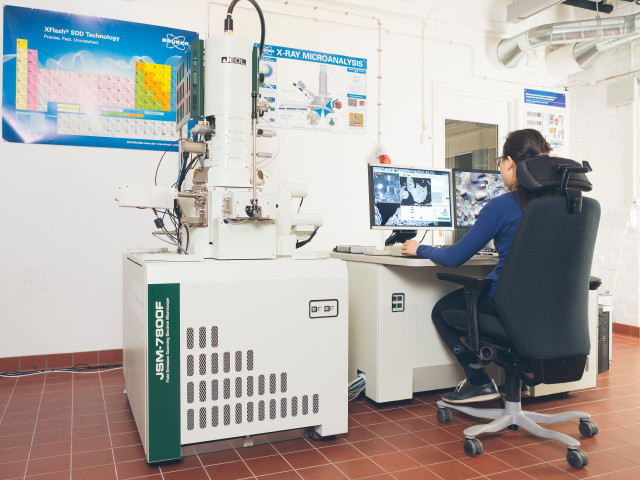The course covers practical and theoretical problems to handle companies in steel industry, but it can also be used as a typical example of management and control of process related industry.
A company's business processes (production, innovation, marketing), is depending on the industrial situation.
In this course, the relations that prevail in the steel industry in particular is treated the company as a whole and its environment will be analysed and discussed within the scope of a case study.
The case study will include description of the company's products and its business functions (management, control, finance).
Apart from business related issues, the markets, customers, the customer's customers and competitors and the conditions for different actors on above-mentioned markets are analysed.
The case study is reported during a presentation at a seminar and in a written report.
MH2501 Economical Process Analysis and Strategy 6.0 credits

Economical analyses of processes.
Information per course offering
Information for Autumn 2026 Start 26 Oct 2026 programme students
- Course location
KTH Campus
- Duration
- 26 Oct 2026 - 11 Jan 2027
- Periods
Autumn 2026: P2 (6 hp)
- Pace of study
33%
- Application code
10918
- Form of study
Normal Daytime
- Language of instruction
English
- Course memo
- Course memo is not published
- Number of places
Min: 10
- Target group
- Open for application for TTMVM1-2. Elective for all programs, provided that the course can be included in the program.
- Planned modular schedule
- [object Object]
- Schedule
- Schedule is not published
- Part of programme
Contact
Course syllabus as PDF
Please note: all information from the Course syllabus is available on this page in an accessible format.
Course syllabus MH2501 (Autumn 2020–)Content and learning outcomes
Course contents
Intended learning outcomes
After passing the course, the student should be able to:
- Specify organisational, business economics and market concepts and apply these with a focus on steel, process and other manufacturing industry
- Apply models to do business economics analysis of process technology problems
- Formulate, analyse and evaluate a business economics problem within steel, process and other manufacturing industry
- Critically review the work of others, mainly with regard to the use of business economics concepts and models in analysis and synthesis of process technology problems
Literature and preparations
Specific prerequisites
Basic knowledge of how industrial operations are led and organised, the principles of accounting and reporting and how economic calculations can be used as basis for a decision in different business, situations corresponding to the course ME1003 Industrial Management, Basic Course, or the equivalent course industrial engineering, course.
Basic knowledge of metallurgy and metallurgical processes corresponding to the course MH2039 Process Engineering/MH2029 Extractive Metallurgy or MH1022 Fabrication Processes of Metals and Bio Fibres.
Recommended prerequisites
Mandatory: The course MH1003 Industrial Management, Basic Course, or a similar fundamental course. Note: ME1003 Industrial management, Basic Course is given in English in period 1, and in Swedish in period 2-4.
MH2049 Advanced Course in Process Science, or a similar advanced course in industrial processes in process science
Literature
Examination and completion
Grading scale
Examination
- TEN1 - Written examination, 3.0 credits, grading scale: A, B, C, D, E, FX, F
- SEMA - Project, 3.0 credits, grading scale: P, F
Based on recommendation from KTH’s coordinator for disabilities, the examiner will decide how to adapt an examination for students with documented disability.
The examiner may apply another examination format when re-examining individual students.
If the course is discontinued, students may request to be examined during the following two academic years.
Examiner
Ethical approach
- All members of a group are responsible for the group's work.
- In any assessment, every student shall honestly disclose any help received and sources used.
- In an oral assessment, every student shall be able to present and answer questions about the entire assignment and solution.